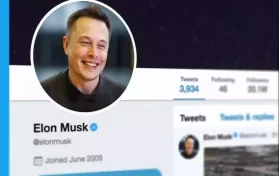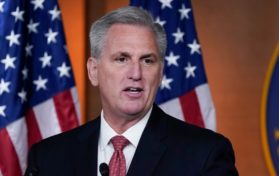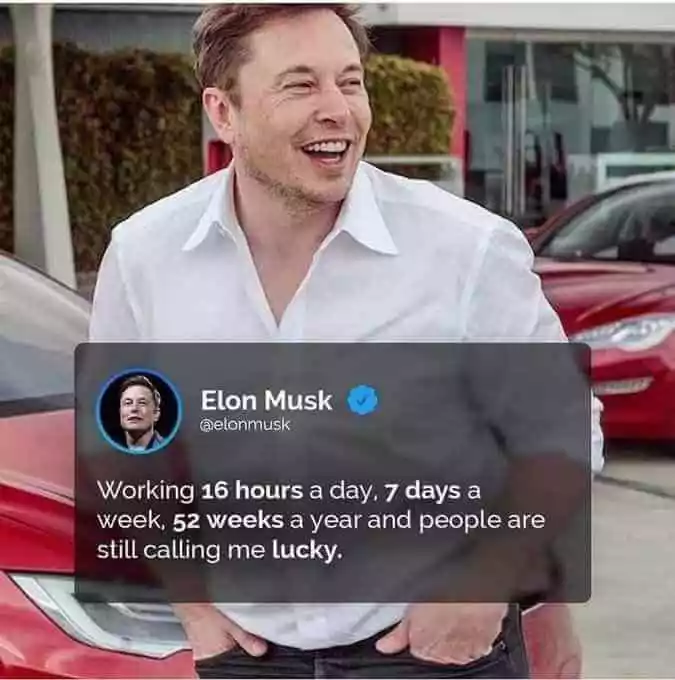
Elon Musk is on a path to become the world’s first trillionaire, largely due to his successes with Tesla and the SpaceX program. The space program has already had 138 successful launches. More launches are planned to come, and those who can pay for the privilege of traveling into the stratosphere are already lined up to go. However, before those successful launches, Musk had quite a few explosions, making any success of his program look pretty bleak.
Musk has also seen unprecedented success with his auto manufacturing business, Tesla. The Tesla is considered a luxury electric vehicle, and Musk recently moved his company from California to Austin, Texas where the economy is a bit more friendly for entrepreneurs.
However, any time a person has a great deal of success, that individual is bound to have critics. Musk has been criticized for his wealth. Only a week ago, Musk and Senator Elizabeth Warren (D-MA) were at odds on the social media platform Twitter. Warren has openly criticized Musk among other wealthy entrepreneurs for not paying income tax. Musk did not back down when Warren tweeted about his supposed tax evasion. He released information showing that he would be paying taxes in 2021, and it would likely be the largest amount of taxes any entrepreneur has paid in the history of the United States.
For those wondering, I will pay over $11 billion in taxes this year
— Elon Musk (@elonmusk) December 20, 2021
Warren isn’t the only person – high profile or otherwise – to “hate on” Elon Musk and his success. Musk has engaged in Twitter wars with fellow moguls Bill Gates and Jeff Bezos. He has been sued by his shareholders in Tesla, by former engineers in his Tesla company, and by Jeff Bezos. Musk also likes to poke fun at himself. He’s appeared on Saturday Night Live where it’s rumored the cast wasn’t too keen on his hosting of the show. He’s also provided his own voice in multiple episodes of South Park.
Elon Musk’s Early Years
Although Musk doesn’t back down to those who criticize him, life hasn’t always been a piece of cake for this super-successful individual. Elon Musk was born in Pretoria, South Africa on June 28, 1971. Musk’s mother is no stranger to the spotlight. Although is is a trained dietician, Maye Musk has also been a successful model. She has been on the cover of Time magazine, and she’s been on more than one box of Special K cereal.
In 2017, at sixty-nine years of age, Maye Musk also won a modeling contract with the make-up giant, Cover Girl. Maye Musk also appeared on Saturday Night Live with her son, Elon. The pair have a close relationship today; however, when Elon’s parents divorced in 1979, both Elon and his brother decided they wanted to live with their father.
At the time his parents divorced, Elon was only nine years old. When Elon moved in with his father, their troubled relationship became more and more evident. Musk has described his relationship with his father, particularly when he was young, as “notoriously troubled.” He would tell Rolling Stone magazine some years later that his decision to move in with his father “was not a good idea.”
Musk not only had a tough time at home, but he also experienced bullying at school. Musk once had to be hospitalized due to a beating from his school mates. They shoved Musk down a set of stairs. Then, they beat him until he lost consciousness.
Perhaps Musk’s experience with bullies in life helped to prepare him for the bullies he would deal with in the media and in the business world. If so, those experiences built an individual who refuses to back down.
Elon Musk’s Education
Musk would briefly enroll in the University of Pretoria in South Africa, but, he would eventually move to Canada, from which his mother hailed. There, he spent two years taking classes at the Queen’s University there, but he would eventually transfer to the University of Pennsylvania in the United States. Musk earned a bachelor’s degree in both physics and economics.
Musk moved to California in 1995 in order to enroll at Stanford University. His original plan was to pursue a doctorate in energy physics, but he never enrolled. Instead, Elon and his brother Kimbal would begin their first entrepreneurial pursuits.
Elon Musk’s Various Business Ventures
Kimbal and Elon would start a software company in California, Zip2. Their startup business was eventually acquired by Compaq in 1999. Elon would then go on to establish (with co-founders Harris Fricker, Christopher Payne, and Ed Ho) the online bank X.com. This company would eventually become PayPal. eBay eventually bought PayPal in 2002.
Musk is most widely known for the Tesla company, which has been Musk’s grandest venture. However, Musk was invested in SpaceX two years before he would join Tesla as a chairman and product architect. He created a company called SolarCity, which is now SolarCity (SolarCity was the source of one of the lawsuits Musk has been involved with versus Tesla shareholders).
Stage separation confirmed! The @SpaceX Dragon is now floating freely and flying toward the @Space_Station with science, supplies, and holiday treats aboard for the @NASA_Astronauts. pic.twitter.com/ncOPLLXNgd
— NASA (@NASA) December 21, 2021
Most recently, Musk has been involved in founding OpenAI, a company that deals with “friendly” artificial intelligence. Neuralink, The Boring Company, and Hyperloop are all companies with Musk at the helm.
Elon Musk Controversies
Musk, at times, can be his own worst enemy. Some critics cite “unorthodox or unscientific stances” and “highly publicized controversies” as a basis for discrediting the successful entrepreneur.
In 2018, Musk was sued by a British caver for defamation (the case involved the Tham Luang cave rescue; a California jury found in Musk’s favor). The SEC (the United States Securities and Exchange Commission) sued Musk in 2018 as well; their suit had to do with a Musk tweet in which they claimed he falsely stated he had found funding for a private takeover of his electric car company. He would later settle with the SEC on the matter. Musk has also been accused of spreading disinformation regarding the COVID-19 pandemic; in addition, he has tweeted or otherwise made public his beliefs regarding cryptocurrency, public transport, and AI.
Musk has been a donor to the Democratic Party in the past, but he appears to be increasingly conservative in his business dealings. Musk took the state of California to task earlier this year, speaking out on what he called “overtaxation.” Musk has also tweeted about his move to Austin, recently sharing that he didn’t want Austin to become San Francisco.
Musk has openly criticized former President Donald Trump for the 45th president’s stance on climate change. However, he had been on two advisory committees for Trump just prior; he resigned from the groups in protest to Trump’s leaving the Paris Accord.
Musk endorsed Democratic candidate Andrew Yang (who would later change his party affiliation to Independent in mid-2021), but, he eventually threw his support behind Kanye West during the general election.
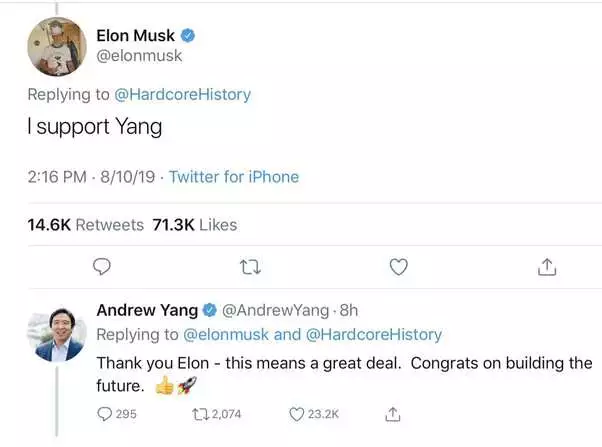
Musk stated in response to a comment by Texas governor Greg Abbott (who said that Musk supported the social policies of the typically conservative state) that it was in his (Musk’s) best interest to stay out of politics.
Musk has been labeled as “transphobic” due to a July 2020 tweet in which Musk said, “Pronouns suck.”
In light of the above-referenced tweet, Musk’s partner, Canadian pop star, Grimes – who even hopped on Twitter to criticize Musk’s tweet regarding pronouns – announced that the couple is “semi-separated.” Musk and Grimes have a child together. As with most every other event in Musk’s life, the name of the pair’s child is also a source of controversy for the mogul. Musk’s son with Grimes is named X Æ A-Xii, a choice which also drew a great deal of controversy for both parents.
Just recently, Musk criticized the Biden Administration‘s Build Back Better legislation, which contains a proposal that the federal government would provide subsidies to individuals who would purchase an electric vehicle – but only if the vehicle is manufactured in a plant that offers a union membership to employees. Because Musk’s Tesla plant is not unionized, those purchasing the luxury electric vehicle would not be entitled to the full $12,500 subsidies proposed in the Build Back Better bill. Musk was quick to critique the legislation, and he has let it be known to the public that he promotes a free market rather than a great deal of government regulation.
Musk’s Work Ethic
Musk credits his success with his unfailing work ethic. HarperCollins published Elon Musk: Tesla, SpaceX, and the Quest for a Fantastic Future, and the book details Musk’s extraordinary working hours as well as his self-proclaimed productivity secrets.
Musk is known for working between 80 and 120 hours each week between his Tesla and SpaceX ventures.
Musk begins every day with his most important tasks. He begins each day by answering emails which he believes (if he didn’t respond in a timely manner) would block productivity in his employees. He takes at least a half hour each morning to go through and answer these messages. Musk himself has said: “Don’t waste time on stuff that doesn’t actually make things better.”
Next, Musk believes in feedback, particularly negative feedback. He consistently hires individuals who can provide the most truthful feedback rather than “yes men” who might tell a successful billionaire only what he would like to hear.
Musk approaches every issue as if he is working an equation or reasoning through a physics problem. He breaks problems down into fundamental principles, then works to create a new solution to the issue.
Musk ensures that he has few distractions. He declines unnecessary meetings and turns off his notifications so that he isn’t distracted in the office.
Among other priorities, clear communication, scheduling for maximum time optimization, and his incredible ambition are part of his success. Musk is known for setting incredibly difficult and seemingly unattainable goals, yet working toward them anyway.
One example of this is the production of the Tesla Roadster. He originally set production for 2006, yet, after several setbacks, he finally had a car available to the public in 2008. Musk continually pushes himself – and his employees – outside their personal comfort zones. Musk has said about this goal setting process: “I say something, and then it usually happens> Maybe not on schedule, but it usually happens.”
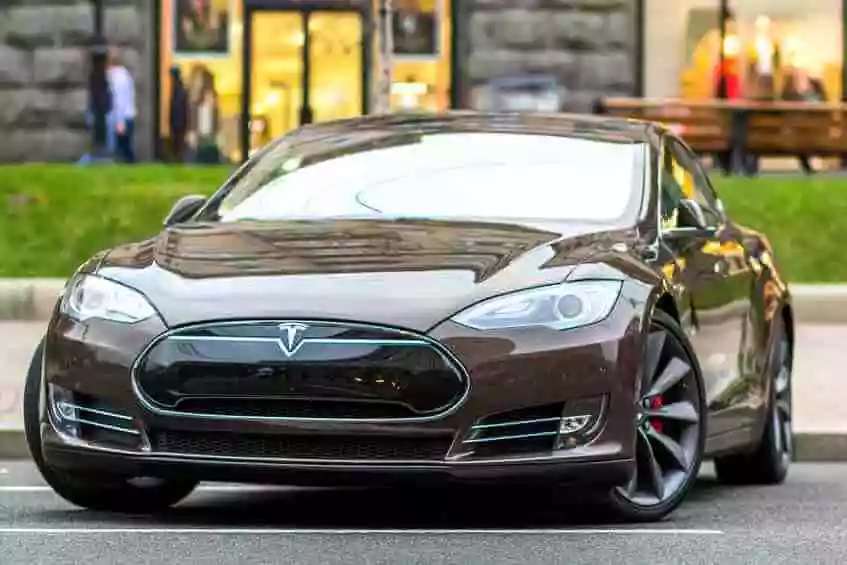
In 2018 Entrepreneur article, Musk was described as possessing “relentless unstoppability.”
Musk was turned down for a position at the then-highly popular search engine (but now defunct) Netscape in 1995. He was thrown out of the Zip2 company, where he was the CEO in 1996. In 1999, PayPal was voted (one of the) “worst business ideas.” A year later, Musk was on his honeymoon when the company ousted him. Russians refused to sell rockets to Elon Musk, then next year, when he founded SpaceX, they turned down his business once more.
His first SpaceX launch ended in an explosion.
In 2008, both SpaceX and Tesla were on the verge of bankruptcy – that’s the same year he finally got the Roadster, well, on the road.
As recently as 2016, a SpaceX rocket exploded.
Yet, in 2021, he launched a successful SpaceX mission with four civilians on board.
Is Musk lucky, or has he earned his success?
Although Musk himself has tweeted about his “luck,” those 100 hour work weeks aren’t for naught. Musk has an undeniable work ethic, and he understands how to prioritize his tasks as well as delegate them when necessary. He also refuses to give up – and that is perhaps the greatest ingredient for his success.
Like most entrepreneurs, Musk has put in an undeniable amount of work to get where he is today. Love him or hate him – his ingredients for success are the perfect recipe for any type of entrepreneurial prosperity.


